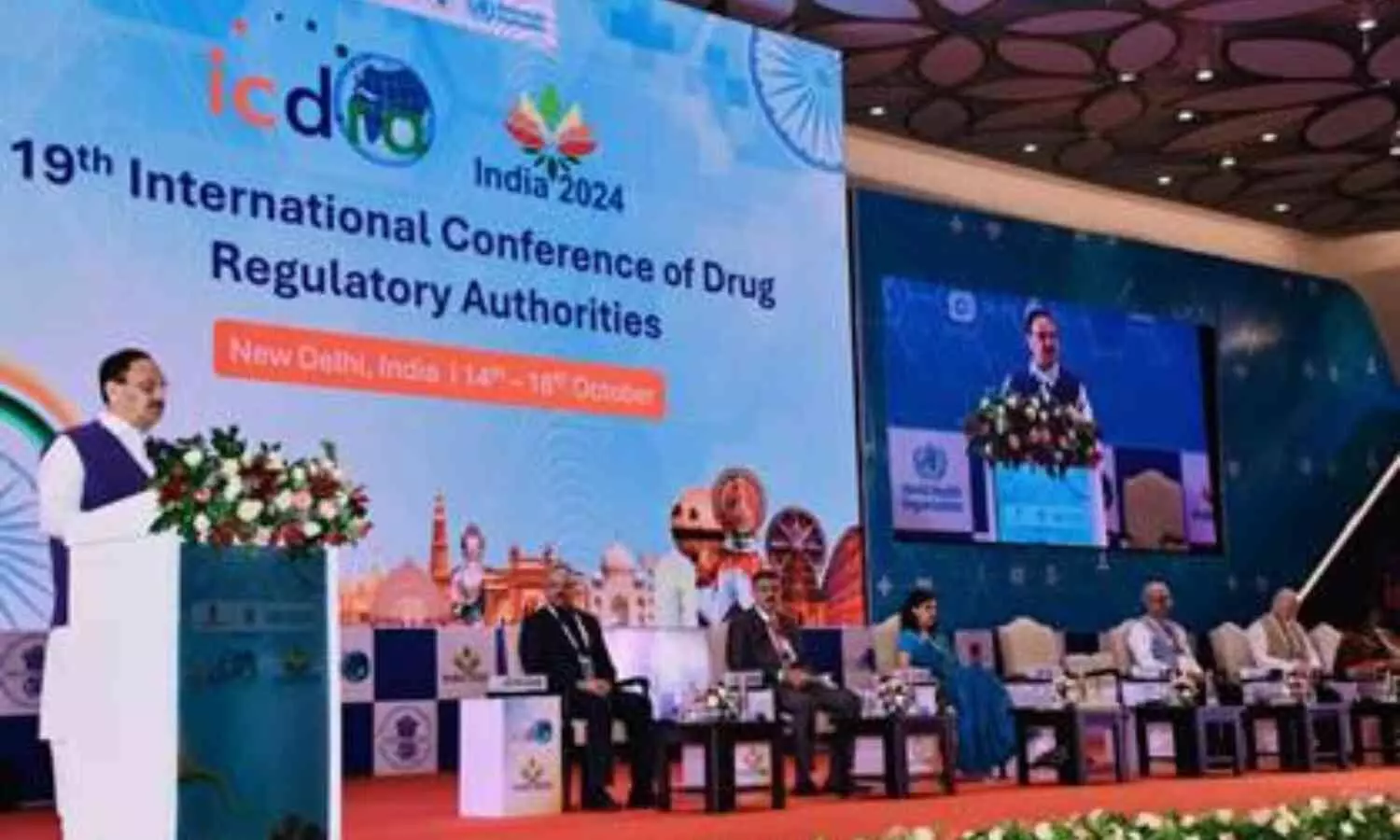India Hosts 19th International Conference of Drug Regulatory Authorities (ICDRA)

New Delhi: Union Minister of Health and Family Welfare, Shri Jagat Prakash Nadda, inaugurated the 19th International Conference of Drug Regulatory Authorities (ICDRA) today.
This is the first time India is hosting the event, which runs from October 14th to 18th, organized by the Central Drugs Standard Control Organization (CDSCO) in collaboration with the World Health Organization (WHO). The event brought together regulatory authorities, policymakers, and health officials from over 194 WHO member states.
Addressing the gathering, Shri Nadda highlighted India’s pivotal role in healthcare, especially during the COVID-19 pandemic. “India emerged not only as a global leader in health resilience and innovation, but also reaffirmed its role as the Pharmacy of the World,” he said.
He emphasized that India's healthcare infrastructure and vaccine production were rapidly expanded to meet both domestic and global demands.
“The successful rollout of the COVID-19 vaccination program, covering over a billion people, is a testament to the robustness of our healthcare system, the dedication of our health workers, and the soundness of our policies,” he added.
Shri Nadda further stressed India’s contribution in providing affordable access to essential medicines, vaccines, and medical supplies to over 150 countries.
“Guided by the principle of ‘Vasudhaiva Kutumbakam’—the world is one family—we extended our support to more than 150 countries, providing life-saving drugs and vaccines during the pandemic. This spirit of international solidarity is at the heart of India’s approach to global health,” he stated.
Highlighting India’s drug regulatory systems, Shri Nadda noted, “The ICDRA platform provides a space to share knowledge, foster partnerships, and develop regulatory frameworks that ensure the safety, efficacy, and quality of medical products worldwide.”
He also praised the achievements of CDSCO, saying, “It has developed robust systems for approving safe and efficacious drugs and medical devices in the country and for export to more than 200 countries.”
He informed the audience about India’s progress in drug testing, noting that eight drug testing labs are currently operational, with two more in the pipeline, and eight mini testing labs are functional at various ports for quick testing and release of imported drugs.
"More than 95% of regulatory processes have been digitized at CDSCO, bringing transparency and increasing trust among stakeholders," he said.
The minister also highlighted India’s initiatives in medical device regulation, stating, “Drugs Rules have been amended to make Good Manufacturing Practice Guidelines more comprehensive and at par with WHO-GMP guidelines.”
Additionally, it was pointed out that QR codes are now mandatory on the top 300 drug brands and API packs, further ensuring drug supply chain integrity.
Dr. Tedros Adhanom Ghebreyesus, Director-General of WHO, commended India for hosting this critical regulatory forum, emphasizing the importance of global cooperation in addressing challenges such as antimicrobial resistance and the safe use of AI in healthcare.
Saima Wazed, WHO Southeast Asia Regional Director, also recognized India’s significant contribution, noting that “India is the largest provider of generic medicines while the Indian Pharmaceutical Industry is the third largest in the world.”
She added that “a strong regulatory system is crucial to achieving universal health coverage” and called for strengthened regulatory convergence between national regulatory authorities.
Concluding his address, Shri Nadda reaffirmed India’s commitment to advancing global health: “We believe in 3 Ss—‘Skill, Speed, and Scale’—and by focusing on these three aspects, we have been able to meet the increasing demand for Pharma products while adhering to global quality standards without any compromise.”
He stressed that India is prepared to address global health challenges, from antimicrobial resistance to ensuring equitable access to life-saving treatments, and emphasized, “We are not just participants in this dialogue; we are partners in building a healthier, safer, and more resilient world.”
An exhibition held alongside the main conference showcased India’s innovation and capabilities in pharmaceuticals, medical devices, and clinical research. Key industry players presented their advancements to an international audience, solidifying India’s reputation as the "Pharmacy of the World."
Several side meetings are also scheduled during the 5-day conference, where global regulators will engage in discussions on regulatory frameworks, promoting innovation, and addressing public health needs through collaboration.


